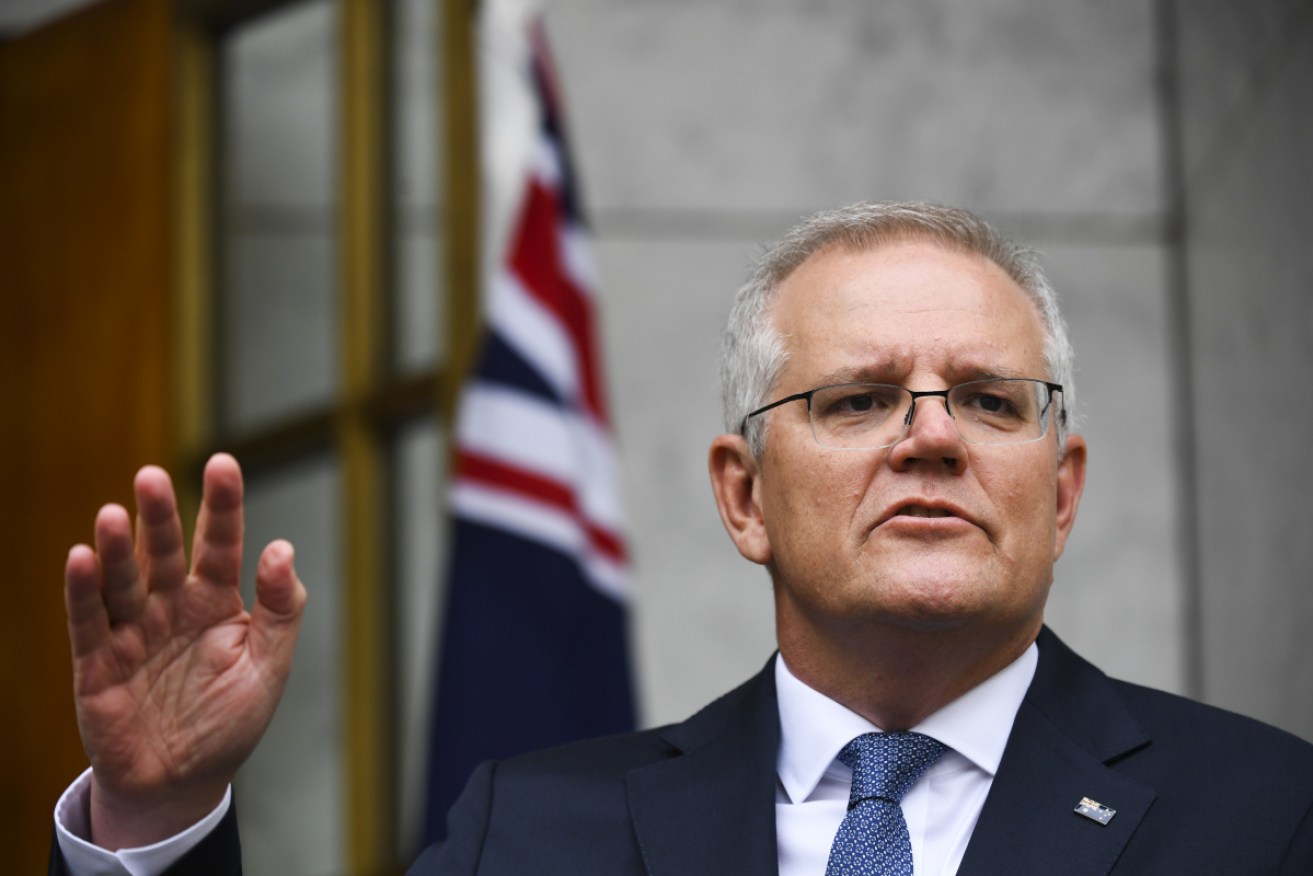No changes to boosters, mask rules after snap national cabinet meeting


Scott Morrison said masks remained "highly recommended" indoors, but would not be made compulsory.
There will be no change to booster intervals and masks will not be required across Australia, despite the ever-increasing spread of the Omicron variant.
Speaking after Wednesday’s emergency national cabinet meeting, Prime Minister Scott Morrison confirmed the interval between second and third COVID vaccine shots would remain at five months.
Ahead of the meeting, some states had pushed strongly to bring the time frame forward to as soon as three or four months.
“That will be for the experts at ATAGI. It is not a decision for myself or the premiers,” Mr Morrison said.
He said half of Australians who were already eligible for a COVID booster shot had so far received one.
However, the federal government will pay an extra $10 to GPs and pharmacists for every booster they administer, while states will also be encouraged to keep vaccination hubs open to keep the program running.
However, national leaders at Wednesday’s meeting were unable to agree on mask mandates. Queensland, Tasmania and the ACT have already introduced stronger mask rules, but NSW – in particular – remains opposed.
Nationally, masks remain only “highly recommended” indoors, although Mr Morrison said people were “strongly encouraged” to wear them.
“Whether it’s mandated or not, that’s what we should be doing,” he said.
Nationally, the vaccination focus will remain on shots for children aged 5-11, which will begin from January 10.
“There’s plenty of vaccines, there’s plenty. There’s 20 million in Australia right now,” Mr Morrison said.
General John Frewen, who is in charge of the national vaccine rollout, said he would aim for two million vaccine doses a week.
“We look forward to working with the states and territories to really ramp up the program in January and February in particular,” he said.
Mr Morrison also said national cabinet had requested expert advice about the need for COVID tests for interstate travel. Testing queues have ballooned in some states, particularly NSW and Victoria, ahead of Christmas.
“We’ve all seen the terrible queues and the long waits people have had. Some 20 to 25 per cent of those people waiting are not symptomatic, they’re not a close or casual contact. They just want to travel to another state,” he said.
“This is putting unnecessary pressure on the system.
“There was a very good discussion about the public health orders in other states – it’s not just Queensland – that are imposed on people.
“There was a positive discussion and the medical expert panel will give further advice on whether testing is required at all for travel, or if we can move to the more simple measure of RAT (rapid antigen testing) which will reduce those queues.”
Chief medical officer Paul Kelly said requirements for pre-travel testing and delayed results were hindering tracing efforts in some states.
An expert definition has also been sought for casual and close contacts – a measure that is also likely to help curb demand for testing.
“We must have a common definition, right across the country, of what is a casual contact, and what are the implications of being a casual contact,” Mr Morrison said.
“We cannot have different rules in different places.”
However, he said all the state and territory leaders had agreed to rule out lockdowns, despite Omicron driving case numbers to record levels.
“One of the main things we agreed on today is, we do not want to go back to lockdowns,” he said.
“My main message is: stay calm, get your booster, follow the common sense behavioural measures.”
NSW posted another record daily case tally of 3763 on Wednesday, as well as two more deaths. Victoria had 1503 infections and six additional deaths.
Both Queensland and the ACT had daily case highs of 186 and 58, respectively. Tasmania notched up 12 more cases.
Professor Kelly said Omicron was here to stay, with more than 500 infections across Australia. The variant accounted for about 60 per cent of cases in NSW – “mostly in young people and mostly a mild disease”.
“We need to learn to live with it,” he said.








